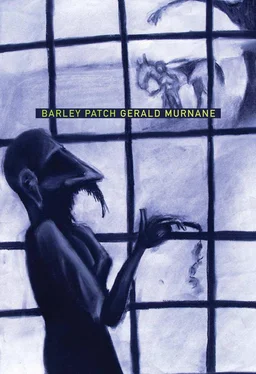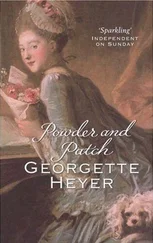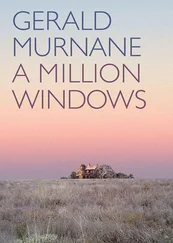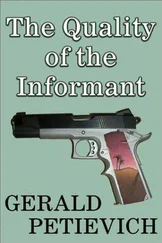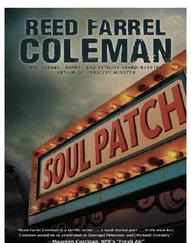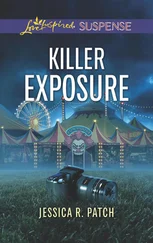Gerald Murnane - Barley Patch
Здесь есть возможность читать онлайн «Gerald Murnane - Barley Patch» весь текст электронной книги совершенно бесплатно (целиком полную версию без сокращений). В некоторых случаях можно слушать аудио, скачать через торрент в формате fb2 и присутствует краткое содержание. Год выпуска: 2011, Издательство: Dalkey Archive Press, Жанр: Современная проза, на английском языке. Описание произведения, (предисловие) а так же отзывы посетителей доступны на портале библиотеки ЛибКат.
- Название:Barley Patch
- Автор:
- Издательство:Dalkey Archive Press
- Жанр:
- Год:2011
- ISBN:нет данных
- Рейтинг книги:5 / 5. Голосов: 1
-
Избранное:Добавить в избранное
- Отзывы:
-
Ваша оценка:
- 100
- 1
- 2
- 3
- 4
- 5
Barley Patch: краткое содержание, описание и аннотация
Предлагаем к чтению аннотацию, описание, краткое содержание или предисловие (зависит от того, что написал сам автор книги «Barley Patch»). Если вы не нашли необходимую информацию о книге — напишите в комментариях, мы постараемся отыскать её.
Barley Patch — читать онлайн бесплатно полную книгу (весь текст) целиком
Ниже представлен текст книги, разбитый по страницам. Система сохранения места последней прочитанной страницы, позволяет с удобством читать онлайн бесплатно книгу «Barley Patch», без необходимости каждый раз заново искать на чём Вы остановились. Поставьте закладку, и сможете в любой момент перейти на страницу, на которой закончили чтение.
Интервал:
Закладка:
My mother handed back to me the pages of my fiction. I destroyed them soon afterwards, but without having given my mother the satisfaction of knowing that I had done so.
When I thought of Huldah as being of marriageable age, I supposed that her hiding herself was not the result of some deformity but of the opposite. I supposed that Huldah might have been like the princess in many a so-called fairytale who was so beautiful and so talented that her father would give her in marriage only to some young man who could perform three impossible-seeming tasks. I also connected Huldah with a female character I had read about a few years earlier in a comic-strip named Rod Craig , in one or another Melbourne newspaper. I had little sympathy for the hero of the strip, Rod Craig himself, who was a muscular adventurer and yachtsman. But I was much interested in a certain female character in one of the episodes of the comic-strip.
Rod Craig was occupied with some or another important task on some or another island in the south-west of the Pacific Ocean. While he went about his task, he came to hear about a mysterious pale goddess who was venerated by a tribe of dark-skinned persons in some remote valley or on some remote outer islet. Rod, of course, resolved to meet up with the goddess. Her dark-skinned worshippers, of course, denied him access to her. I have long since forgotten the struggles that took place between Rod Craig and the dark-skinned persons, but I can still recall the line-drawing that appeared sometimes in the comic-strip during the fictional time when Rod Craig was trying to gain access to the pale goddess. The drawing was of a large, ornate building of grass or leaves or coconut fibre or some such material. On the side of the building facing the viewer was a doorway. Nothing was visible in the darkness on the other side of the doorway, but I understood that the space beyond the doorway was an antechamber, the first of many such vestibules or foyers that led through a maze of inner chambers towards the abode of the goddess. Again, I forget the details of the plot, so to call it, but I recall the line-drawing of the scene in one of the outer chambers of the elaborate building when Rod and the goddess met at last. Her costume was studded with hundreds of pearls that her followers had gathered for her over the years, and the few pen-strokes suggesting her features allowed me to believe that she was beautiful. She was, of course, the sole survivor of a shipwreck and had been rescued as a child by the dark-skinned ones, who had never seen a pale-skinned person. She readily agreed to return with Rod to the civilised world, so to call it, and the very last panel illustrating her story showed her dressed in a blouse and slacks and waving from the deck of Rod’s yacht to her former worshippers, who had seemingly accepted her departure from them. (The ghost of a story in which I was the ghost of a character had a different ending. Rod Craig was set upon and killed by the dark-skinned persons after he had committed the sacrilege of stepping across the outermost threshold of the goddess’s apartments. I was allowed to stay on among the goddess-worshippers after I had given them to understand that I wanted no more than to be able to learn at some future time the ground-plan of the goddess’s building and, perhaps, to erect a modest but not uncomplicated dwelling of my own within walking-distance of her abode.)
When I thought of Huldah as being of marriageable age, I had no way of knowing how much she might have learned about myself-the-ghostly-minor-character who loitered sometimes around the grounds or along the corridors of Kinie Ger. And even when I was able to suppose that she had learned something at least about me, how was I to know whether she felt towards me contempt or indifference or even such a warm interest that I ought to expect before too long some sort of message from her locked room?
When I thought of Huldah as being past marriageable age, which is to say when I thought as a child that Huldah might be forty or older, she was of no less interest to me than the young, marriageable Huldah.
In 1955, only a few years after I had first read about Huldah, I read in one of my secondary-school textbooks the poem “The Scholar Gipsy,” by Matthew Arnold. When I state that I have never since forgotten the poem, I mean, of course, not that I can recall whole lines or stanzas, much less the entire poem, but that I can see in my mind clearly today much of what I saw in my mind when I used to read the poem as a schoolboy and that I can feel today much of what I felt then. The scholar who had to give up his studies at Oxford on account of his poverty and who lived thereafter with gipsies on lonely back-roads or in remote woodlands — or, I should rather write, the imprecise images in my mind of a nameless, faceless figure skulking in the background of a few other images in my mind of a few landscapes of England, a country I have never seen, affect me still today somewhat as the original account of the lad from Oxford seemingly affected Matthew Arnold so that he came to write the poem. Even during the years when I was driven to give every free hour to the latest of my writing projects, I would sometimes be overtaken by a strong intimation that the true work of my life still awaited me: that I had still not discovered the precious enterprise that would occupy me wholly for the remainder of my life in some or another quiet room behind drawn blinds. During my teenage years, however, and during the many later years before any of my writing was published, the equivalent for me of the scholar’s research among the gipsies was always the latest of the poems or the pieces of fiction that I was trying to write. Even as a child in the years when I read such fiction as The Glass Spear , I mostly saw myself-the-adult as a reader or a writer in a house of two storeys overlooking rural landscapes, although I recall a period when I had a rather different vision of my future.
I had been interested in horse-racing from my early childhood, although I had learned early to conceal much of my interest, given that my father’s gambling had caused much hardship in our family. I read each week the copy of the Sporting Globe that my father had discarded but I read it out of sight of my parents. I began to notice in the Globe , as it was commonly called, advertisements for racing systems, as they were called. Each advertiser published the names and the odds of the winning horses selected on the previous Saturday by his system, which was for sale at no small price. In time, I began to envisage the advantages that I might enjoy if I myself were able to select every week several winners at generous odds. I was not interested in buying the sort of goods that many a person might have bought with sums of money won from betting. I wanted no more than to be free from having to work for my living; I wanted to go to the races each Saturday and then to spend the rest of the week in my room, working at my writerly or readerly tasks. And this was still several years before I had first read “The Scholar Gipsy.”
There arose, however, whenever I daydreamed of a literary life supported by the proceeds of betting, the interesting complication that I might have to devote many years to the search for a lucrative way of betting before I could fulfil my daydream. I might have to spend year after year comparing the information and the predictions in each Saturday newspaper with the results in each subsequent Monday newspaper. (No newspapers were published on Sunday in those days.) For the time being, I might have to devote all my free time to the task of finding the means that would enable me to devote all my free time to the task that ought to occupy all my free time. In the meanwhile, I would work at some humble clerical job in the State Public Service or the Gas and Fuel Corporation or some such body, taking care each day to conserve my nervous energy for my all-important after-hours tasks.
Читать дальшеИнтервал:
Закладка:
Похожие книги на «Barley Patch»
Представляем Вашему вниманию похожие книги на «Barley Patch» списком для выбора. Мы отобрали схожую по названию и смыслу литературу в надежде предоставить читателям больше вариантов отыскать новые, интересные, ещё непрочитанные произведения.
Обсуждение, отзывы о книге «Barley Patch» и просто собственные мнения читателей. Оставьте ваши комментарии, напишите, что Вы думаете о произведении, его смысле или главных героях. Укажите что конкретно понравилось, а что нет, и почему Вы так считаете.
